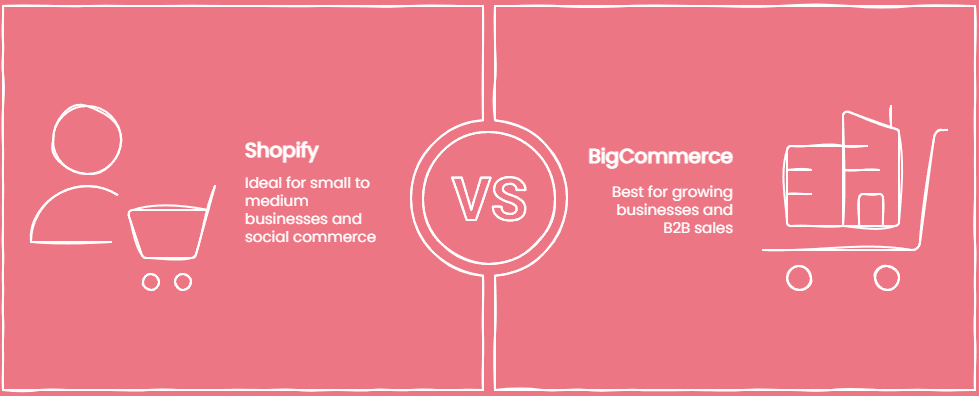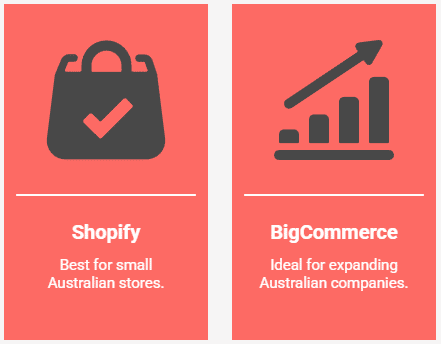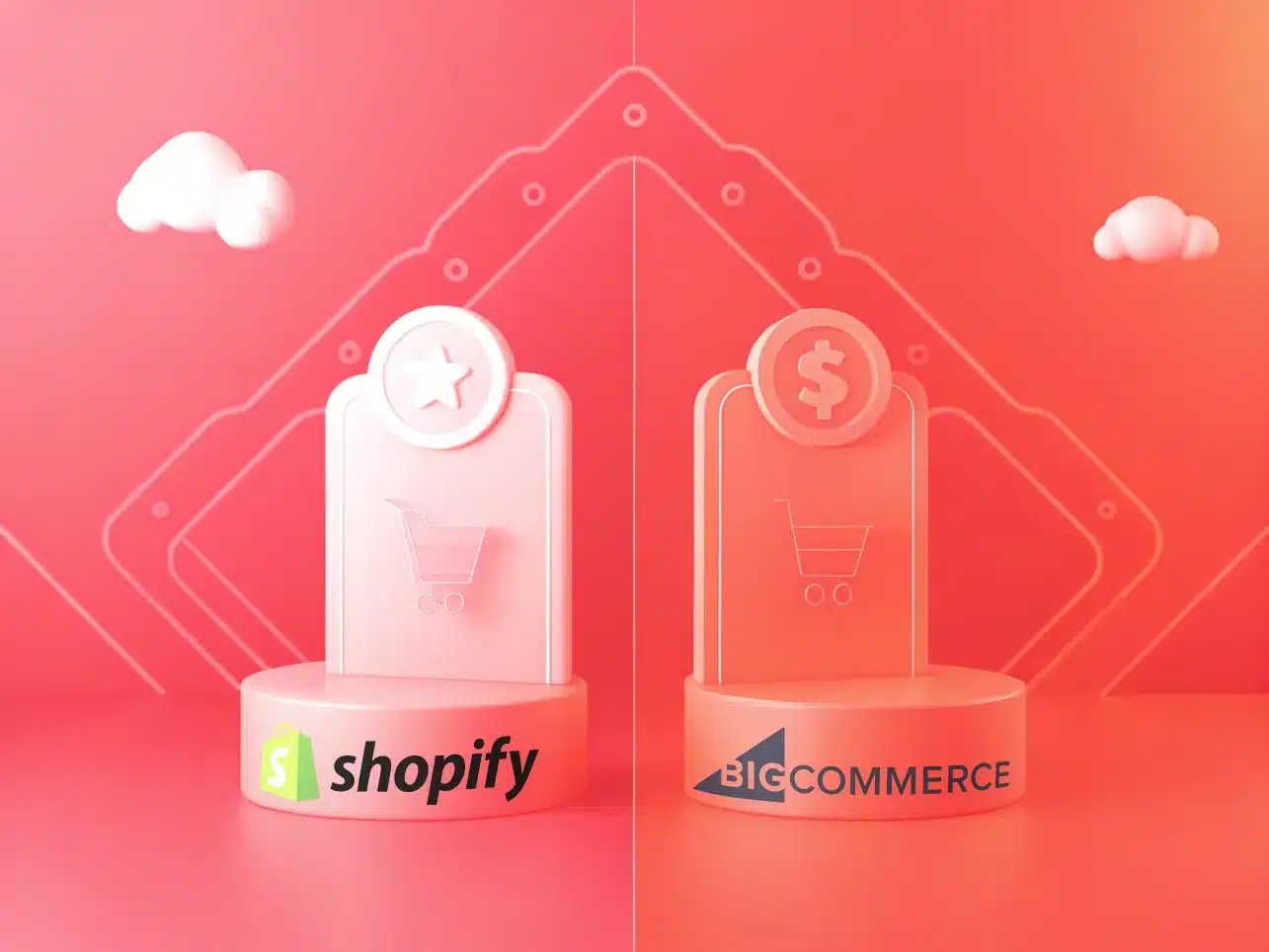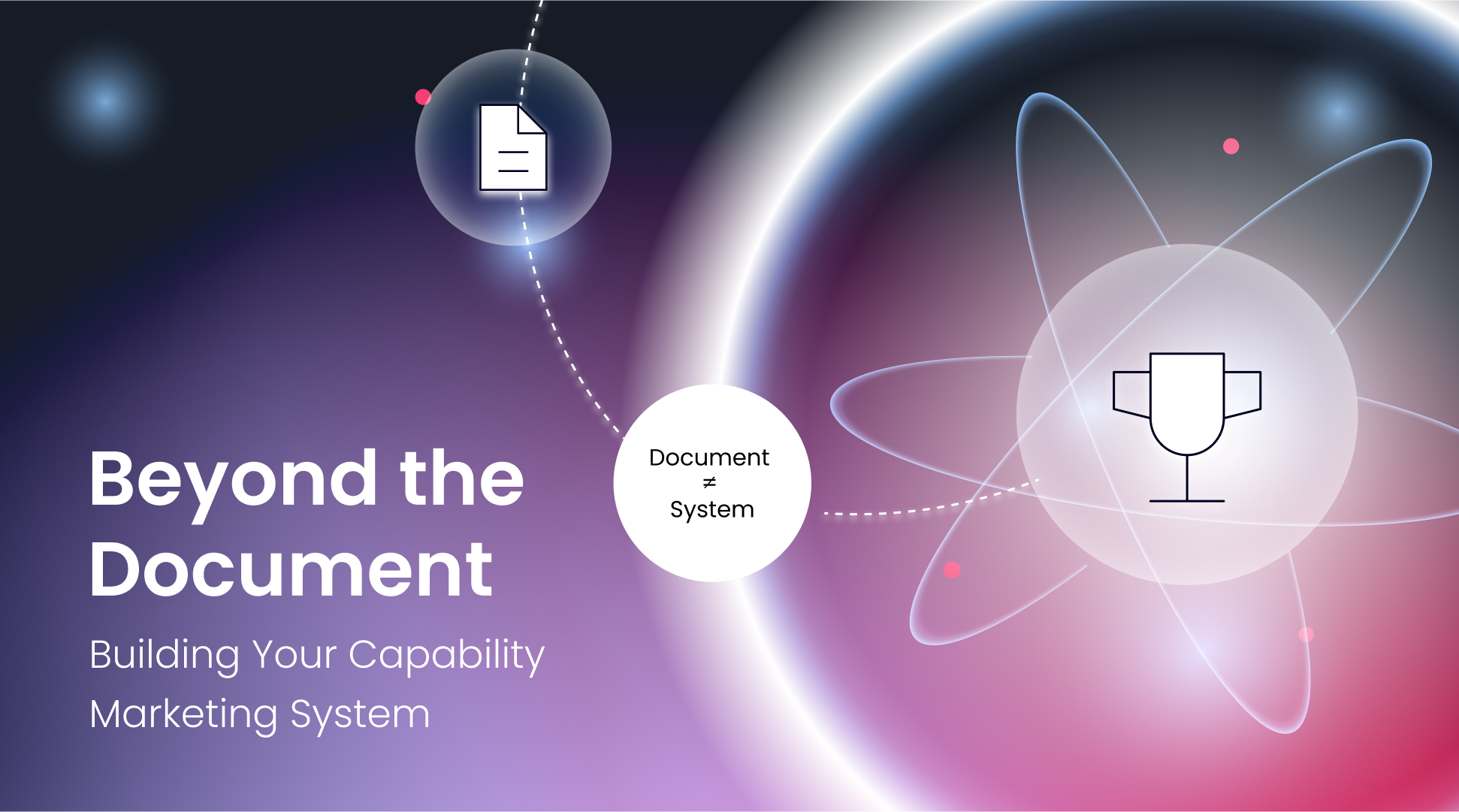Choosing between BigCommerce and Shopify for your Australian online store? Shopify’s ease of use and quick setup are ideal for startups, while BigCommerce shines for scaling businesses with advanced SEO, tax compliance tools, and cost savings. This guide breaks down their features, local relevance, and more to help you decide.
Let’s face it—picking the right e-commerce platform can make or break your online business. As a Sydney-based web design expert, I’ve seen firsthand how the wrong choice can cost time, money, and growth opportunities. That’s why I’ve put together this detailed comparison of BigCommerce and Shopify, tailored specifically for Australian sellers.
Whether you’re a startup in Sydney or a growing enterprise eyeing global markets, this guide will help you choose the best platform for your needs. Let’s dive in!
Why Choose BigCommerce or Shopify for Your Australian Online Store?
First off, why focus on these two giants? Both BigCommerce and Shopify are leaders in the e-commerce space, offering powerful tools to build and grow online stores.
For starters, BigCommerce was founded in Sydney in 2009, giving it a unique connection to Australian businesses. While Shopify, on the other hand, boasts strong local integrations, such as with Australia Post, and a massive user base—over 1.75 million businesses globally at last count.
Together, they cater to a wide range of needs, from small startups to large enterprises. But which one fits your Australian store best? Let’s break it down.

What Are the Core Features of BigCommerce and Shopify for Australian Sellers?
When it comes to building an online store, core features like ease of use, design options, and pricing can sway your decision. Here’s how these platforms stack up for Australian business owners.
How Easy Are BigCommerce and Shopify to Use for Store Setup?
Starting an online store shouldn’t feel like rocket science. Shopify wins here with its beginner-friendly interface. Its drag-and-drop editor lets you launch a store in days, even without tech skills.
BigCommerce, while powerful, has a steeper learning curve. Its built-in features are robust, but they often suit users with some experience.
Verdict: Shopify for quick startups, BigCommerce for those needing advanced tools to scale.
Which Platform Offers Better Design and Customisation for Australian Brands?
Your store’s look matters. Shopify offers over 100 themes, many free, plus the Liquid coding language for deeper tweaks. It also has a thriving third-party design ecosystem.
BigCommerce has fewer themes but excels with its Stencil framework, allowing unique branding without heavy app reliance.
Verdict: Shopify for fast, stylish designs; BigCommerce for bespoke branding needs.
How Do Pricing Plans Compare for Australian Businesses?
Shopify’s plans start at around AUD $39/month, with transaction fees of 0.5%-2% unless you use Shopify Payments.
BigCommerce offers similar pricing tiers (starting at AUD $39/month) but skips transaction fees entirely—a big win for high-volume sellers.
Verdict: BigCommerce delivers better long-term value, especially for growing Australian stores.
Which Platform Supports Australian Payment Gateways Best?
Local payment options like Afterpay and Zip Pay are non-negotiable for Aussie customers. Shopify supports over 100 gateways, including these, but charges fees if you don’t use Shopify Payments. BigCommerce offers 65+ gateways with no extra fees and flexible APIs for custom setups.
Verdict: BigCommerce is the pick for cost-effectiveness and flexibility in Australia.
How Do BigCommerce and Shopify Compare for SEO and Marketing in Australia?
Ranking high on Google Australia and reaching local customers through marketing tools drives your store’s success. So, which platform has the edge?
Which Platform Has Better Built-In SEO Tools for Australian Search Results?
Shopify offers automated meta tags and app-based enhancements, making it simple but sometimes limited.
BigCommerce excels with advanced control over URLs, schema markup, and Google AMP for mobile speed—perfect for technical SEO dominance.
Verdict: BigCommerce is the go-to for ranking higher in local Google searches.
What About Marketing and Multi-Channel Selling for Sydney-Based Stores?
Reaching customers beyond your website is a must. Shopify integrates email tools and social selling on platforms like Instagram and TikTok. BigCommerce offers deeper connections with Google Shopping and Facebook Ads, ideal for targeted campaigns.
Pro Tip: Alongside these marketing tools, Sydney sellers leverage local SEO by targeting geo-specific keywords (e.g. “Sydney handmade jewellery”) for maximum impact.
Verdict: Both are strong, but BigCommerce offers slightly better ad integrations.
How Do BigCommerce and Shopify Handle Australian-Specific Needs Like Tax and Shipping?
Both platforms offer solutions to the unique needs of running an e-commerce store in Australia, from GST compliance to local shipping. But let’s see how each platform stacks up when put head-to-head.
Which Platform Manages Australian GST and Low-Value Import GST (LVIG) Better?
Australian tax laws are strict. All e-commerce businesses must handle GST (10%) on local sales, and for international sales under AUD $1,000, the Low-Value Import GST (LVIG) system applies if your turnover exceeds AUD $75,000 annually, as outlined by the Australian Taxation Office (ATO). Shopify offers basic GST settings but often relies on apps for complex needs. BigCommerce has built-in GST handling, making compliance smoother.
Verdict: BigCommerce is better equipped for seamless Australian tax compliance.
How Do They Compare for Shipping and Local Fulfilment in Australia?
This one is important. Shipping costs and delivery times are deciding factors for most Australian shoppers. Shopify integrates seamlessly with Australia Post and Sendle, simplifying local logistics. Whereas BigCommerce offers flexible shipping rules, but has fewer native integrations, sometimes requiring extra setup.
Verdict: Shopify wins for easier local shipping solutions.
Which Platform Is Better for Scaling and Global Expansion from Australia?
Dreaming of taking your Sydney store worldwide? Shopify suits small to medium businesses with its app ecosystem for growth, though scaling often means added costs. BigCommerce is enterprise-ready, with native multi-currency support and features for international markets.
Verdict: BigCommerce is the stronger choice for Australian businesses aiming for global growth.
Which Platform Is the Right Choice for Your Australian E-Commerce Needs?
Let’s break this down by business type to help you decide.

What’s Best for Startups and Small Businesses in Australia?
If you’re just starting, Shopify’s ease of use and quick setup make it a no-brainer. You’ll be selling in days without the need for any tech know-how.
Verdict: Shopify for small Australian stores.
Which Platform Suits Growing and Enterprise Businesses?
For businesses scaling up, BigCommerce offers better value with no transaction fees, advanced SEO, and enterprise-grade tools. It’s built for growth.
Verdict: BigCommerce for expanding Australian companies.
What Should Sydney-Based Sellers Consider?
Local support and market fit matter. Both platforms offer solid integrations, but consider community support in Sydney and adaptability to local trends when choosing.
Verdict: Assess your specific niche and customer base for the best fit.
Frequently Asked Questions (FAQs)
What Is the Best E-Commerce Platform for SEO in Australia?
BigCommerce stands out with superior built-in SEO tools like URL control and schema markup, perfect for ranking on Google Australia.
How Do Shopify and BigCommerce Handle Australian GST Compliance?
Both support GST calculations, but BigCommerce offers more robust built-in tools. Shopify often relies on apps. For LVIG compliance on overseas sales under AUD $1,000, consult the platform guides and ATO guidelines.
Which Platform Has Lower Fees for Australian Businesses?
BigCommerce avoids transaction fees entirely, unlike Shopify (0.5%-2% unless using Shopify Payments), making it cost-effective for high-volume sellers.
Can I Scale My Sydney-Based Store Internationally With These Platforms?
Yes, both support multi-currency. However, BigCommerce offers native flexibility for global expansion, while Shopify may require additional apps.
Who Can Help Me Set Up My E-Commerce Store in Australia?
Spark is here to help! As a Sydney-based web design service, we offer expert setup and customisation for both Shopify and BigCommerce. Reach out for tailored solutions.
Conclusion: Making the Right Choice for Your Online Store
Choosing between BigCommerce and Shopify comes down to your business size, budget, and growth goals as an Australian seller. Shopify is perfect for getting started quickly, while BigCommerce excels at scaling with advanced features and cost savings.
Take a moment to assess your needs—whether you’re in Sydney or beyond, the right platform can set you up for success. Need help deciding or setting up? Contact my Sydney e-commerce web design team for personalised e-commerce solutions. Let’s build your online store together!





